With the closure of schools in Jamaica due to COVID-19, the Ministry of Education Youth and Information has implemented its emergency in education plan to provide educational services through distance learning. Although a purposeful effort was made to ensure equitable access for all, after three months of virtual learning, some 30,000 students—approximately 7 percent—remain unreached. Among this population are teenage mothers, who account for 18 percent of all births in Jamaica and come from predominantly low socioeconomic, rural, and inner-city communities. As Jamaica begins to plan for the reopening of schools, the country must take measures to avoid leaving these students further behind and also safeguard their protection and well-being.
Teenage mothers are already excluded from the formal school system during pregnancy, as mandated by the Jamaican Education Regulations (1980). They also face immense challenges readjusting to the system under the Reintegration Policy that facilitates teen moms’ return to the formal school system after they give birth.
Pre-COVID-19, The Women Centre Foundation of Jamaica (WCFJ), established in 1978 as a state agency of the government, provided educational services for these girls during and after pregnancy, as well as supported them in their requisite exit examinations. WCFJ also supported these young mothers through day care for their babies, nutrition, and counseling. This support has increased during COVID-19 to include remote education, welfare, and psychological support, as well as provision of care packages of food, toiletries, and other necessities. However, given that many of the girls served by the centers are from disadvantaged backgrounds, decreased mobility due to social distancing has also exposed them to further risk of exploitation and abuse.
The data suggest that the country has experienced a high number of child sex abuse cases since COVID-19 restrictions started in March. Over 700 victims have been reported during March and April, and children 12-17 years old account for some 16 percent of the cases. This is significantly higher than normal compared to previous years. Although the data are not disaggregated to inform whether school-aged mothers are among the statistics, their already high level of vulnerability suggests they are at increased risk of sexual exploitation, second pregnancies, gender-based violence, and other threats.
Although Jamaica’s response for teenage mothers through the WCFJ has been laudable and seems to be addressing many of the immediate needs of this population, there are technology barriers to distance learning that will stack the odds against these girls when they sit at high-stakes exit examinations at the end of July with the rest of their peers. Further, lack of access to learning opportunities may set them up for sexual exploitation as they seek out possible avenues for support in order to advance their education.
GUIDELINES FOR POST-COVID-19 REBUILDING FOR SCHOOL-AGED MOTHERS
Owing to the challenges highlighted for school-aged mothers during COVID-19, it will take more than just reopening classrooms for them to return to school. Steps should be taken to assist with their reintegration.
Support school-aged mothers preparing to take school exit examinations:
- Education officials should assess school-aged mothers’ readiness for the pending exit examinations, make provisions for closing gaps upon reopening of schools this month, and accommodate requests to complete examination preparation virtually for those who are able.
- Given the high-stakes nature of the exit exams in providing school-aged mothers with continued opportunities for postsecondary education, school leaders and the WCFJ should adapt the curriculum for remedial education and accelerated learning to ensure coverage of material important to the examination. Where possible, arrangements should be made to provide supplemental developmental sessions to cover gaps in learning and prepare the young mothers for advancement.
- Given the significant education disruptions for school-aged mothers, the WCFJ working with the Ministry of Education should consider waiving examination fees for students’ second sitting and/or consider postponing the exam for those unprepared until the next academic year. This would also necessitate continued educational support for the girls for an additional year.
Build back better for school-aged mothers in the school system:
- Given the likelihood that some form of distance learning will remain when schools reopen, WCFJ and the Ministry of Education should design and scale remote learning programs using appropriate technology for marginalized girls. Consider enlisting corporate support for technology such as smart phones, data plans, and internet access.
- The economic crisis spurred by the pandemic will place school-aged mothers in continued positions of vulnerability to abuse and exploitation. While the WCFJ should maintain and/or increase psychosocial support, safety, and social protection from gender-based violence, with the Ministry of Labour and Social Security, it should also partner with private sector personnel and other influential organizations to explore assistance for low-income housing for those at greatest risk of exploitation.
- As there may be significant reductions in earnings due to COVID-19, the government should enlist school-aged mothers in the Programme for Advancement through Health and Education (PATH) to help ensure school-aged mothers have some level of financial independence for their basic needs.
- Encourage girls’ meaningful participation in community development initiatives, such as mentorship programs and public speaking activities, to assist with their leadership development skills, boost confidence, and provide a platform to share their experience in a bid to motivate others. This will also help mobilize community and corporate support for the education of school-aged mothers, including those who were out of school before COVID-19.
COVID-19, although unwelcome, presents a grand opportunity for the government and other critical stakeholders to demonstrate their commitment to caring for the most vulnerable—teen moms—and providing equitable access to education to all.
The Brookings Institution is committed to quality, independence, and impact.
We are supported by a diverse array of funders. In line with our values and policies, each Brookings publication represents the sole views of its author(s).

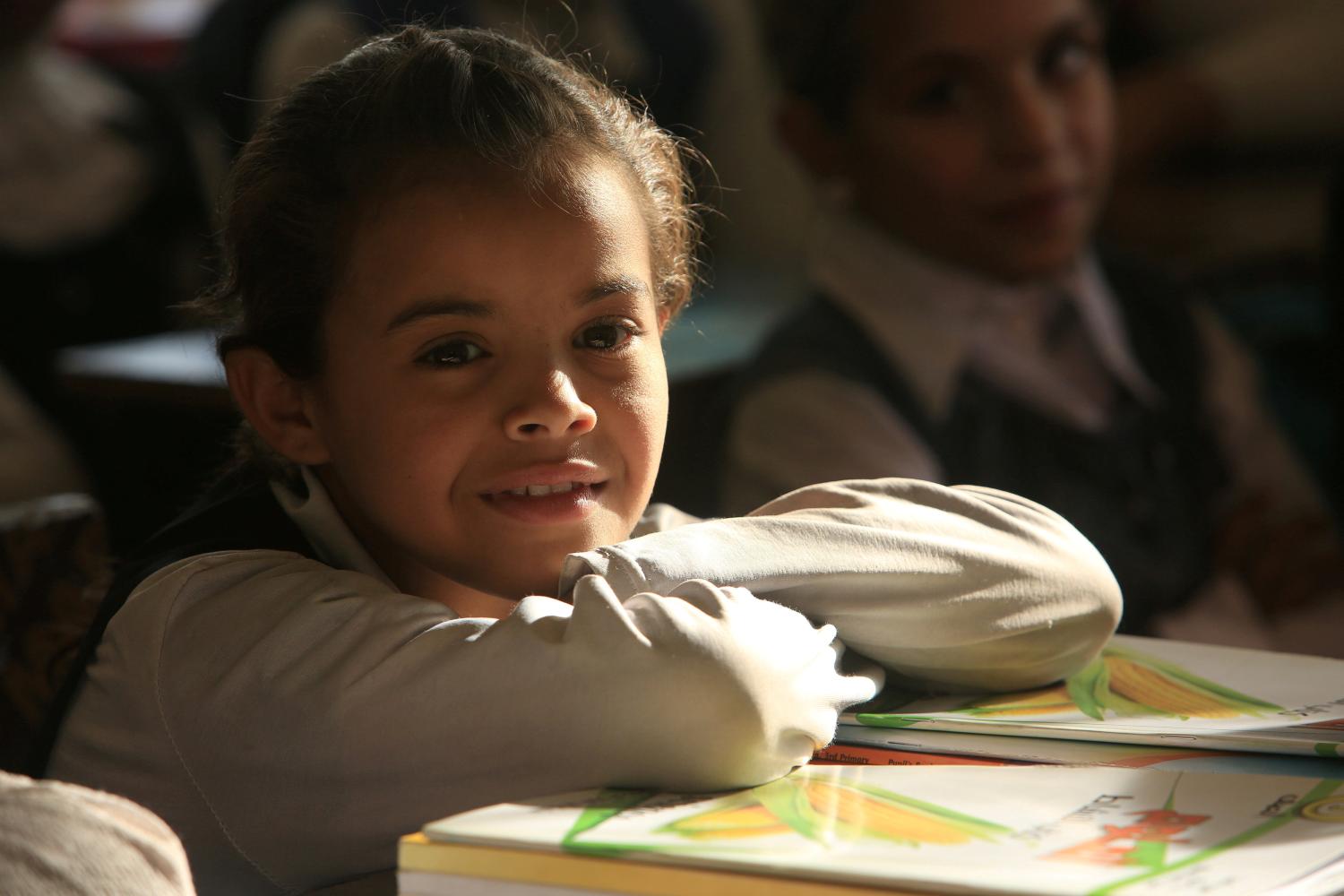
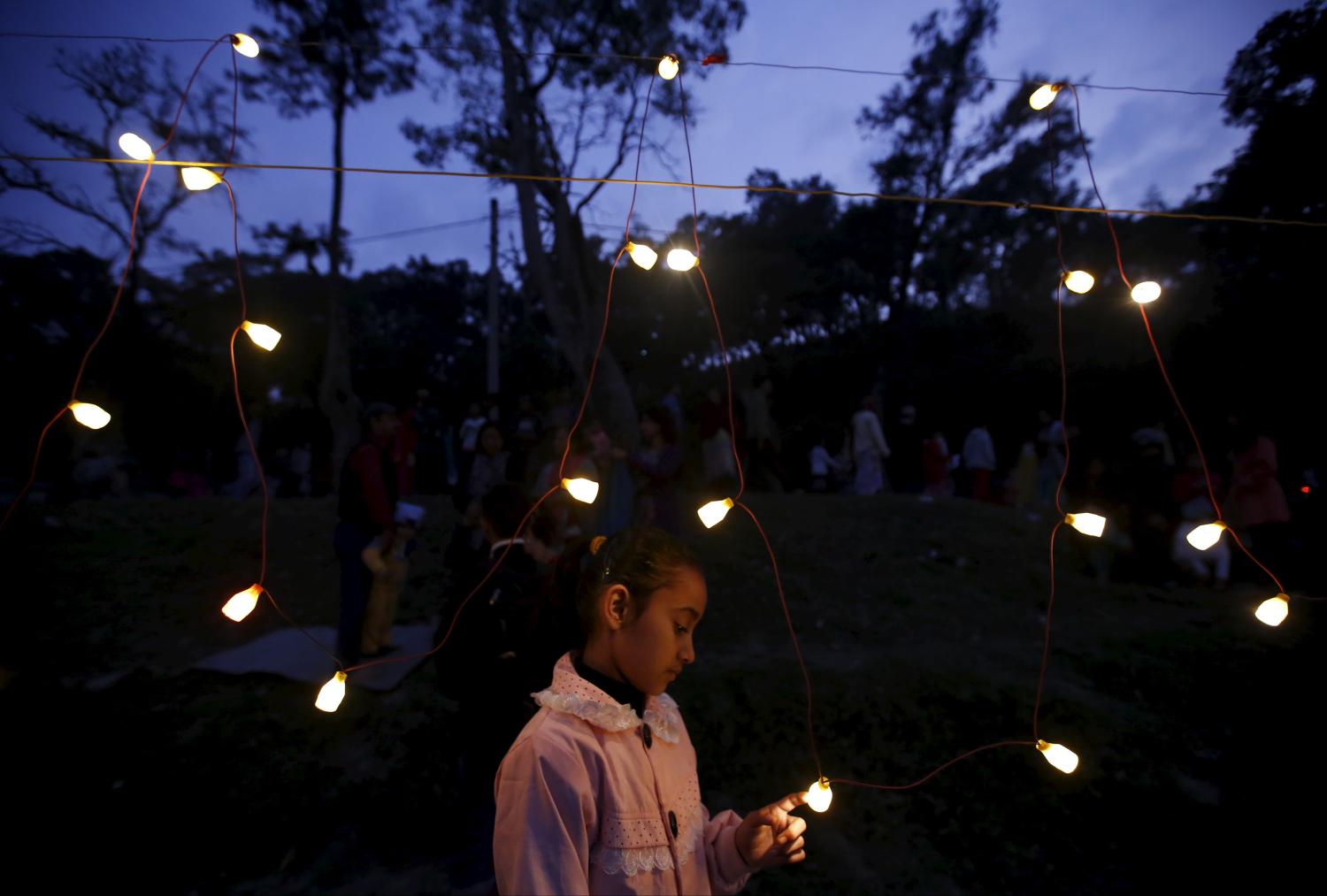
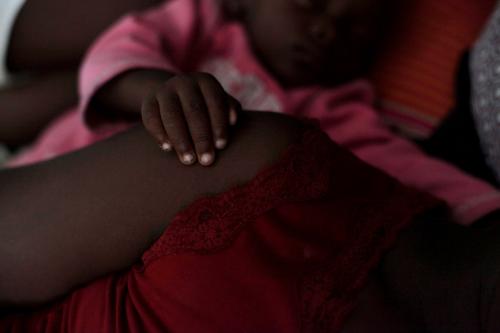
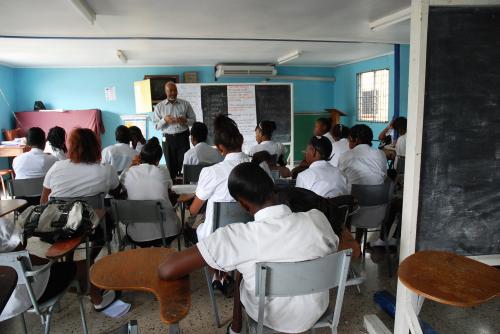




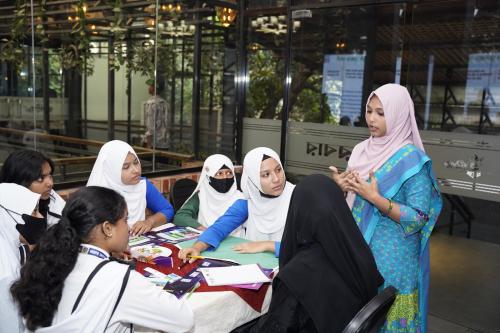
Commentary
Support for school-aged moms in Jamaica during COVID-19
June 18, 2020